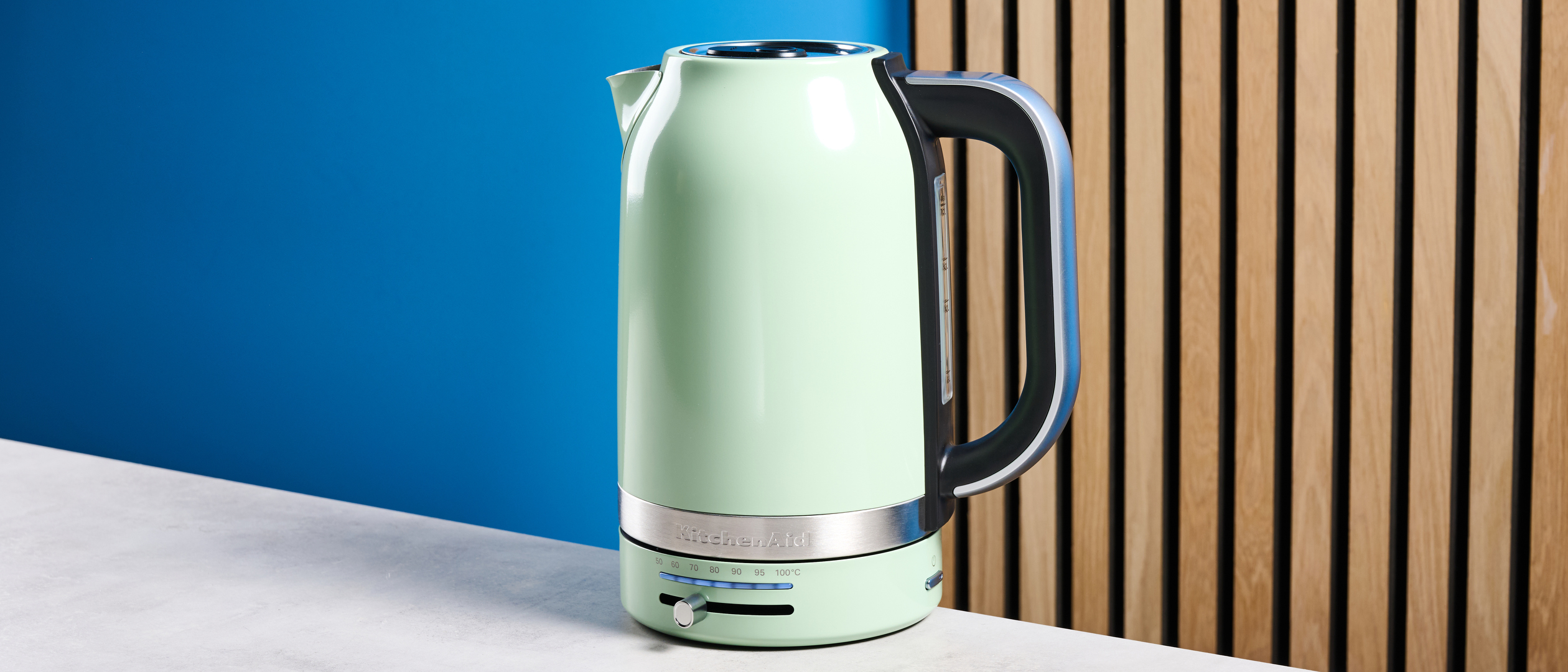Tom's Guide Verdict
The KitchenAid 1.7L kettle is a premium, high-style kettle that will look good in any kitchen. Is it a must-buy? No, not unless you’re not put off by the high price. My Ninja Precision Temperature kettle is a much cheaper offering with similar specs, but if you want a retro-yet-modern kettle that brings style to your kitchen? The KitchenAid 1.7L kettle is a great option.
Pros
- +
Boils water quickly and quietly
- +
Looks great
- +
Custom temperature control
- +
Provided limescale filter
Cons
- -
Really expensive
- -
Lid release button is a little janky
Why you can trust Tom's Guide
The KitchenAid 1.7L Kettle is a beautiful, sleek-yet-retro electric kettle, destined for a sparkling kitchen countertop. KitchenAid has manufactured one of the prettiest kettles I’ve ever seen, but at a cost.
The 1.7L Kettle is a whopping $179, which makes it one of the most expensive electric kettles I’ve ever seen. Yes, Fellow makes $200 kettles, but Fellow’s kettles have an esoteric purpose — the KitchenAid offering seemingly doesn’t.
The KitchenAid 1.7L Kettle is an everyday, generic kitchen kettle, but is it enough to be one of the best electric kettles? To find out, read this KitchenAid 1.7L Kettle review.
KitchenAid 1.7L Kettle review: Cheat sheet
- What is it? A variable temperature electric kettle with 1.7L/1.8QT capacity
- Who is it for? If you want a gorgeous and reliable electric kettle
- What does it cost? Eek: $179 / £179
- What do we like? It’s functional and attractive
- What don’t we like? The price is questionable, I’ll just put it that way
KitchenAid 1.7L Kettle review: Specs
KitchenAid 1.7L Kettle review: Price & availability
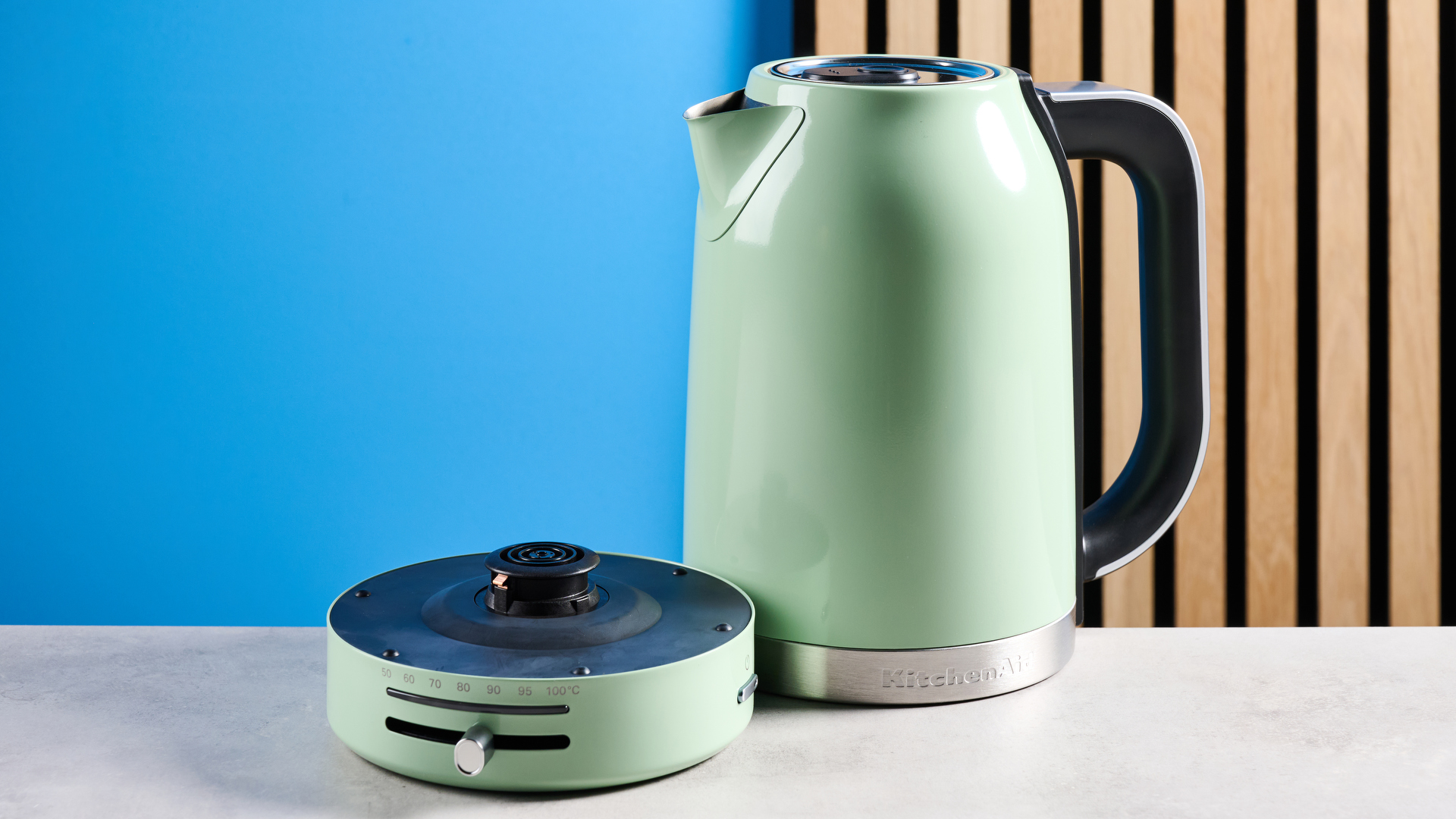
The KitchenAid 1.7L kettle is really expensive for what it is. It’s $179 from Amazon U.S. and £179 from Amazon U.K..
This makes it around the same price as the iconic Fellow EKG range: the Fellow EKG Stagg and Fellow EKG Corvo are $199 each, respectively. However, these are both specialty kettles from a renowned specialty coffee brand. The KitchenAid 1.7L kettle is more of a generic everyday kettle.
In comparison to other general-use kitchen kettles, the Ninja Precision Temperature kettle I use every day is just $89, and the Cosori Glass Kettle is just $27.
KitchenAid 1.7L Kettle review: Design & features
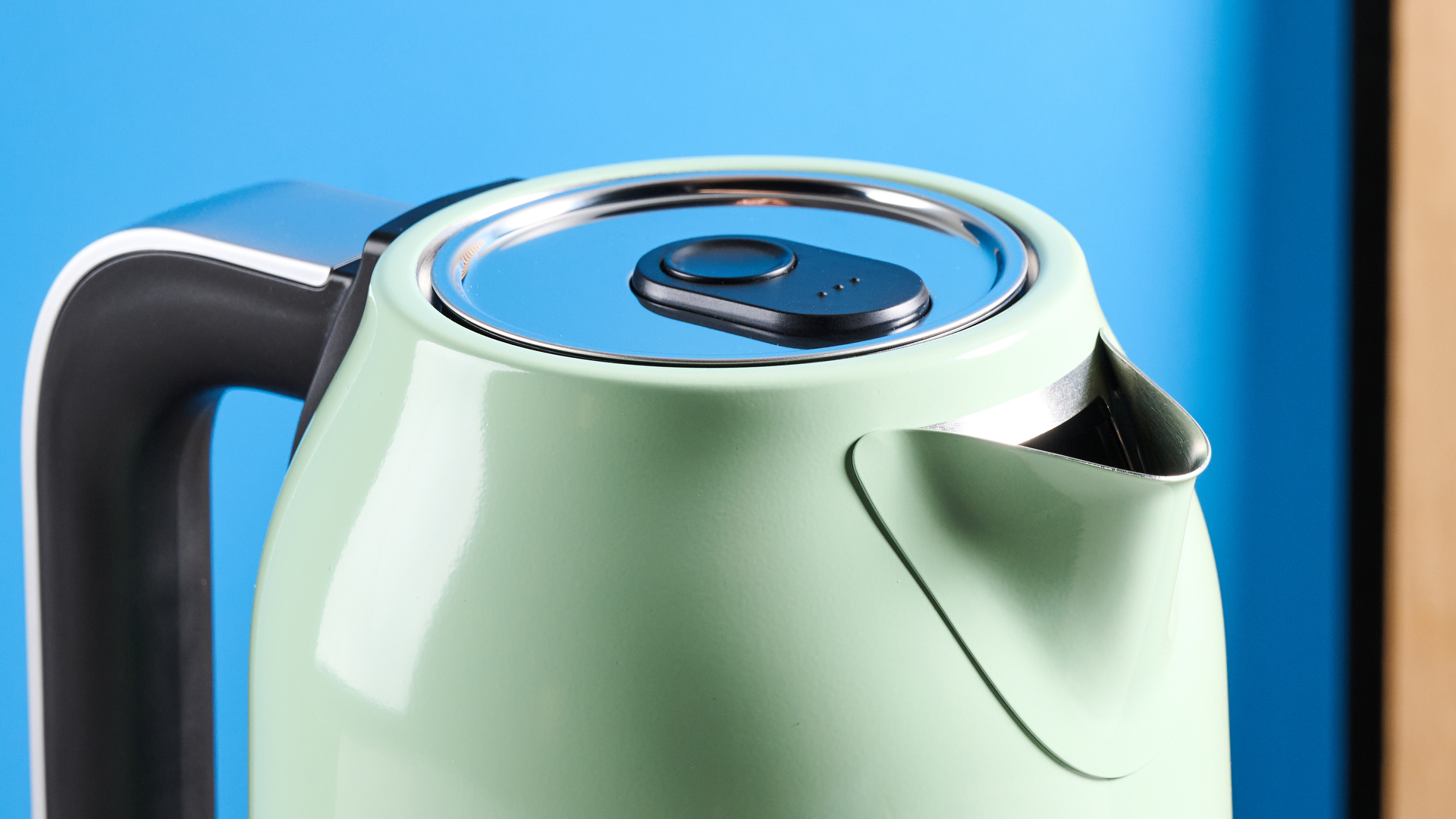
The KitchenAid 1.7L Kettle excels with its design. The sleek-and-modern-yet-cool-retro vibe is almost reminiscent of Smeg, but with KitchenAid’s individual charm.
Get instant access to breaking news, the hottest reviews, great deals and helpful tips.
I tested the sage green version, which would be my choice if I was buying it for myself. It also comes in black, white, and red. I’d like to see it in more color options to match the diverse colorways of other KitchenAid products, like the Artistan Stand Mixer and KitchenAid Blender.
The kettle has an angled spout and a pop-up lid, which is a little stubborn sometimes. Other users have reported the lid release button jams after a while, but I didn’t experience this. It just took a few tries to get it to release on a couple of occasions.
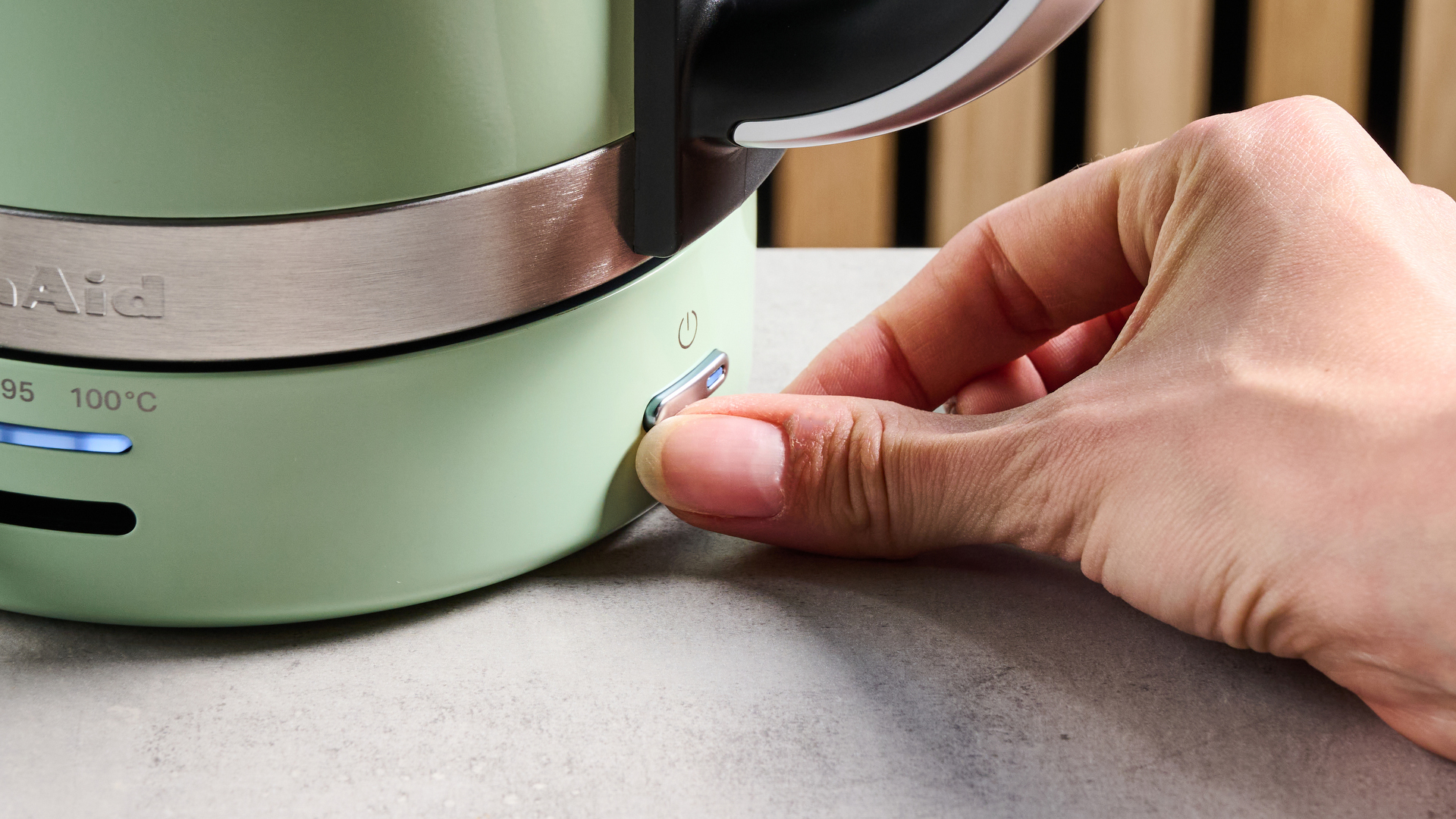
At the base of the kettle is a temperature control slider. Instead of having buttons on the base like the Fellow and Ninja precise temperature kettles, the KitchenAid is controlled by this slider on the kettle itself. I found the slider easy to use and responsive, and never got stuck. There’s a button on the side of the kettle, which is the on/off switch. Unlike Fellow’s EKG kettles, simply selecting a temperature does not set the kettle on to boil.
When the kettle finishes boiling, it emits a one-note tone. If you’ve ever been on an airplane and heard the seatbelt announcement tone, it’s the exact same. I felt like an air hostess every time my kettle finished boiling. It’s actually adorable.
In terms of features, there actually aren’t that many, especially considering this is a $179 kettle. There’s no hold temperature setting, unlike the Fellow and Ninja offerings. You can’t control temperature to the degree (like Fellow) or to 5° (like Ninja). It’s 122°F-212°F (in increments of 18°F, except 203°F). Yes, this is still a great feature, but for $179, I’d expect a little more.
However, the kettle’s actual performance is one of the best kettles I’ve ever tested (I’d hope so for $179…), which I’ll discuss in full now.
KitchenAid 1.7L Kettle review: Performance
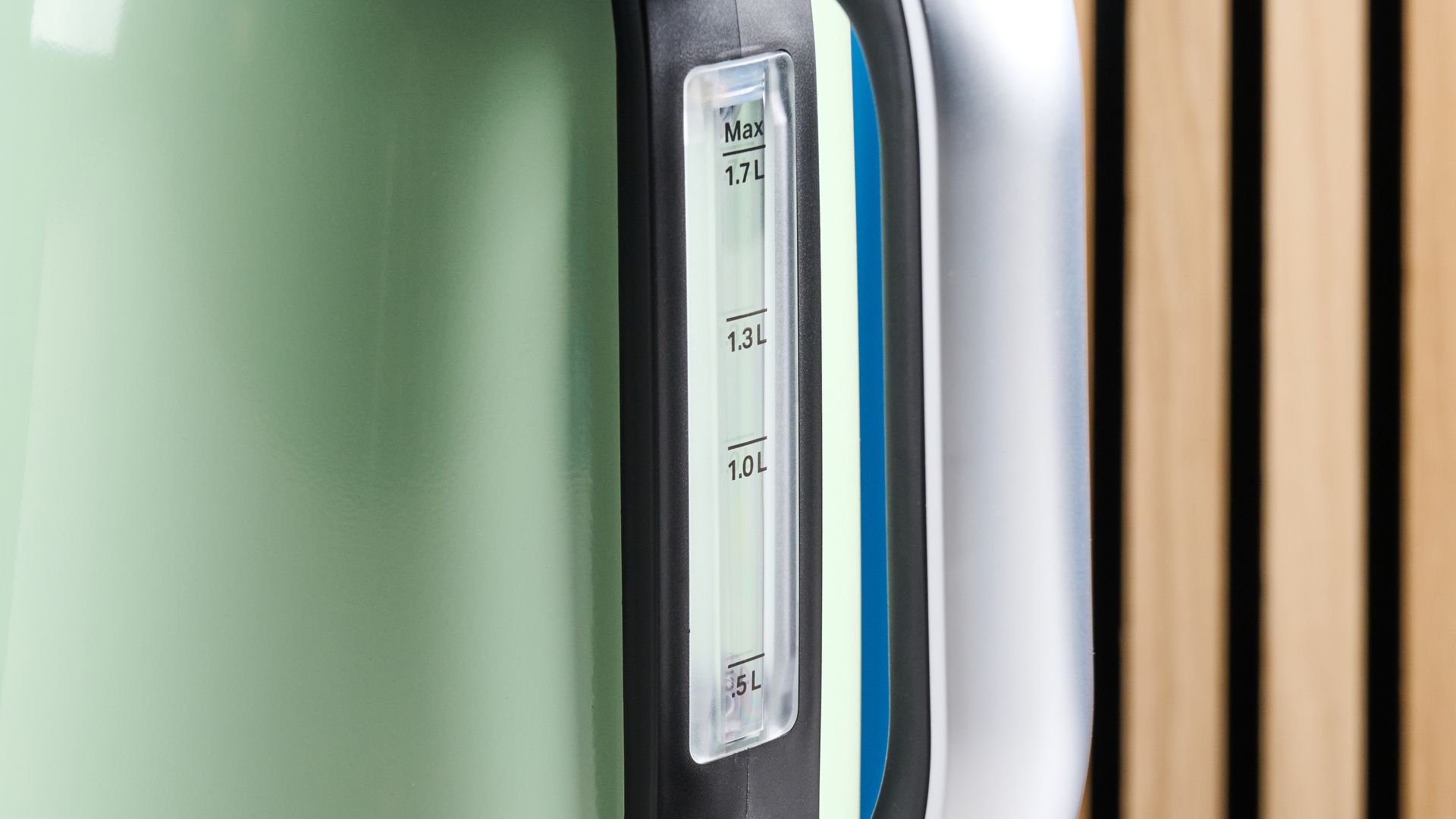
As with all kettles I review, I put the KitchenAid 1.7L Kettle through a series of tests. Time taken to heat, volume while heating, and the ability to retain heat.
Pouring feel is really nice: the kettle doesn’t leak even when pouring out large volumes of water in one go. The spout is angled and small, yet is still capable of pouring quickly.
Boiling speed
Here’s the results from the heating speed tests. I filled the kettle to its max (so 1.7 liters/1.8 quarts) and used water straight from my tap. It should be noted that my testing was done using a 240V version, as I live in the U.K., in the U.S. with lower mains voltages, the times may differ.
122°F/50°C | 1 min 50 sec |
140°F/60°C | 1 min 59 sec |
158°F/70°C | 2 min 37 sec |
176°F/80°C | 3 min 5 sec |
194°F/90°C | 3 min 53 sec |
212°F/100°C | 4 min 1 sec |
My Ninja Precision Temperature kettle takes 4 minutes and 10 seconds to heat its full capacity (also 1.7L), so the KitchenAid pipped it to the post by 9 seconds. Comparatively, the Cosori Glass Kettle took 4 minutes and 4 seconds to heat 1.3 quarts, and the Hario Gooseneck kettle took a shocking 5 minutes and 53 seconds to boil just 800ml (0.8 quarts) of water.
The KitchenAid really impressed me with its boiling speed. This is a very fast kettle that made light work of boiling huge amounts of water quickly.
Operation volume
The KitchenAid 1.7L kettle isn’t just fast — it’s also really quiet. To measure the volume level, I used the DecibelX app, as always.
Here are the results of my tests.
122°F/50°C | 69dB |
140°F/60°C | 68dB |
158°F/70°C | 65dB |
176°F/80°C | 60dB |
194°F/90°C | 56dB |
212°F/100°C | 51dB |
The KitchenAid 1.7L is noticeably quiet while boiling. I wouldn’t have any reservations about making myself a cup of tea at 5 in the morning. The Cosori Glass Kettle was between 67-70dB while boiling, while the KitchenAid, Fellow, and Ninja were just 50dB while boiling.
Heat retainment
For this test, I boiled a full kettle of water and then measured the water’s heat after 30 minutes, 60 minutes, 90 minutes, and 120 minutes. Here are my results.
30 mins | 74°C/165°F |
60 mins | 68°C/154°F |
90 mins | 61°C/141°F |
120 mins | 55°C/131°F |
While I expected these results (as there’s no hold temperature setting), I was still pretty disappointed to see such a drop off in the first 30 minutes. The kettle’s insulation did a decent job of retaining heat after that initial drop, but I would still reboil the kettle after thirty minutes if I was making another tea or coffee.
KitchenAid 1.7L Kettle review: Storage & maintenance
If you live in a hard water area, you’ll need to descale the KitchenAid 1.7L kettle semi-regularly. Upkeep will depend on your location. I live in one of the hardest water areas in the U.K., so I would descale about once every 6 weeks.
KitchenAid recommends using vinegar, citric acid, or lemon juice to clean mineral buildup (limescale) off the inside of the kettle.
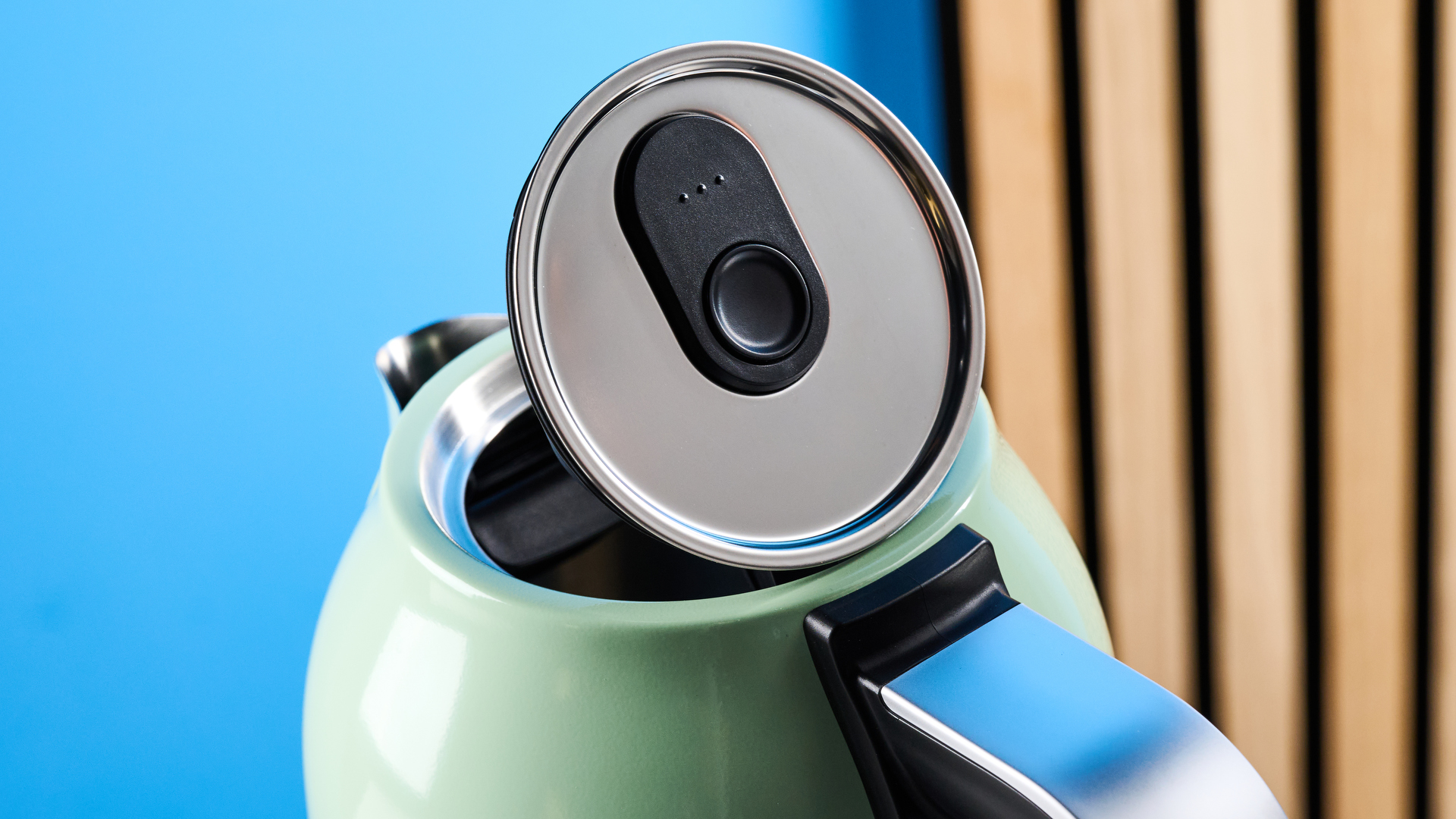
The kettle itself, as I said in the ‘Design’ section above, is beautiful. There’d be no reason to store this inside a cupboard between uses: it’s destined for the countertop. It’s just gorgeous. At just 5.8 inches wide, too, it doesn’t take up too much space. The heating element base is noticeably smaller than my Ninja Precision Temperature.
Should you buy the KitchenAid 1.7L Kettle?
If you’re not concerned about cost, then yes, the KitchenAid 1.7L kettle is a fantastic premium kettle that boils quickly, quietly, and prettily. Is it a necessary purchase if you’ve already got a basic electric kettle? No, not at all.
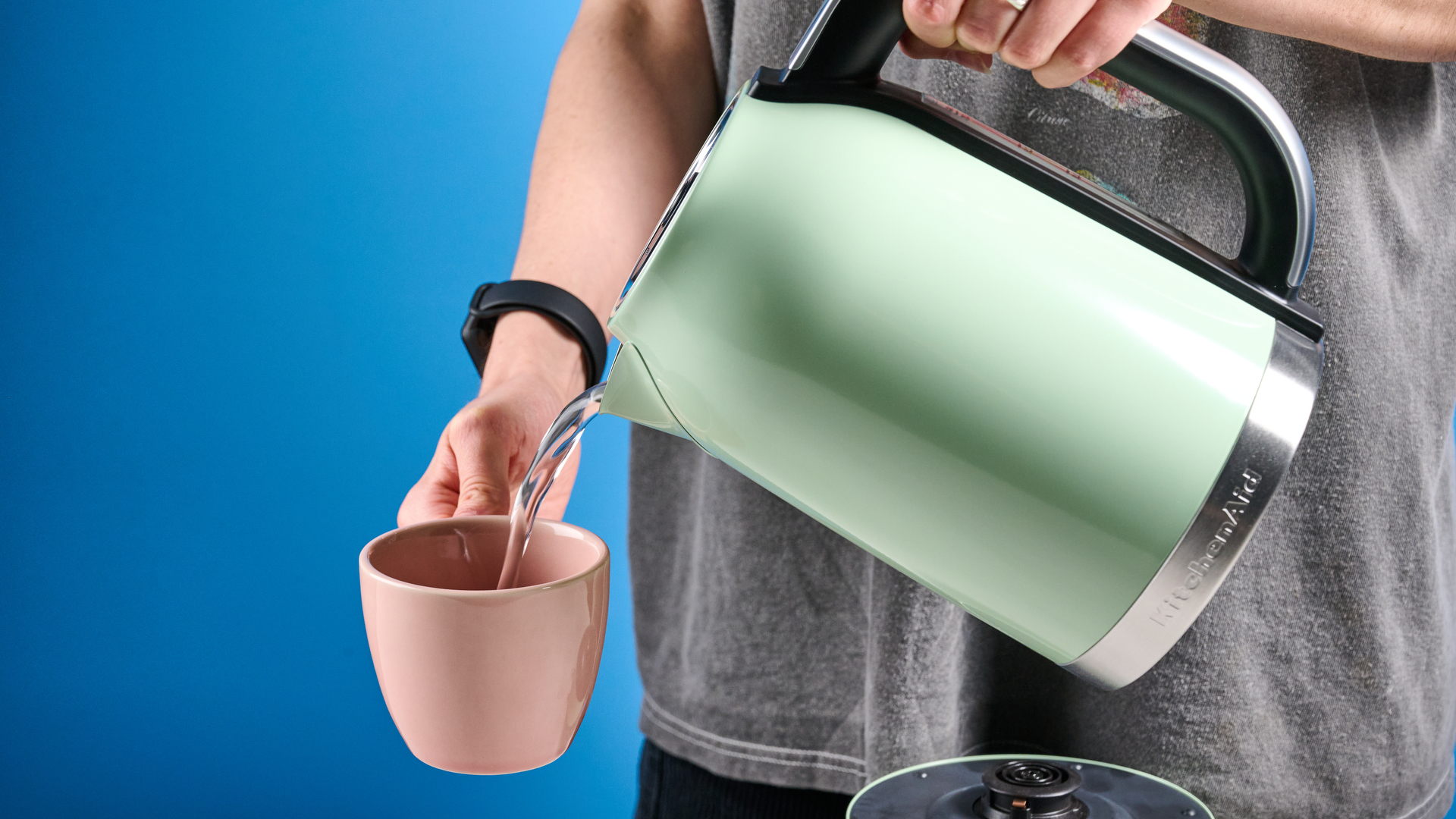
If you value a fast, attractive kettle that’ll bring some pizzazz to your kitchen, I completely recommend the KitchenAid 1.7L. Personally, I wouldn’t buy it, as I love my $79 Ninja Precision Temperature. The Ninja option does everything the KitchenAid does for $100 less.
However, that doesn’t mean the KitchenAid is redundant. It fulfils its purpose as an electric kettle well, and looks a treat while doing so. It’s just really expensive.

Erin Bashford is a senior writer at Tom's Guide, focusing on reviews. She has a Masters in Broadcast and Digital Journalism from the University of East Anglia. As an ex-barista, she knows her way around a coffee machine, and as a music lover, she's constantly chipping away at her dream of having a multi-room home sound system. In her spare time you can find her reading, practising yoga, writing, or stressing over today’s NYT Games.
You must confirm your public display name before commenting
Please logout and then login again, you will then be prompted to enter your display name.
